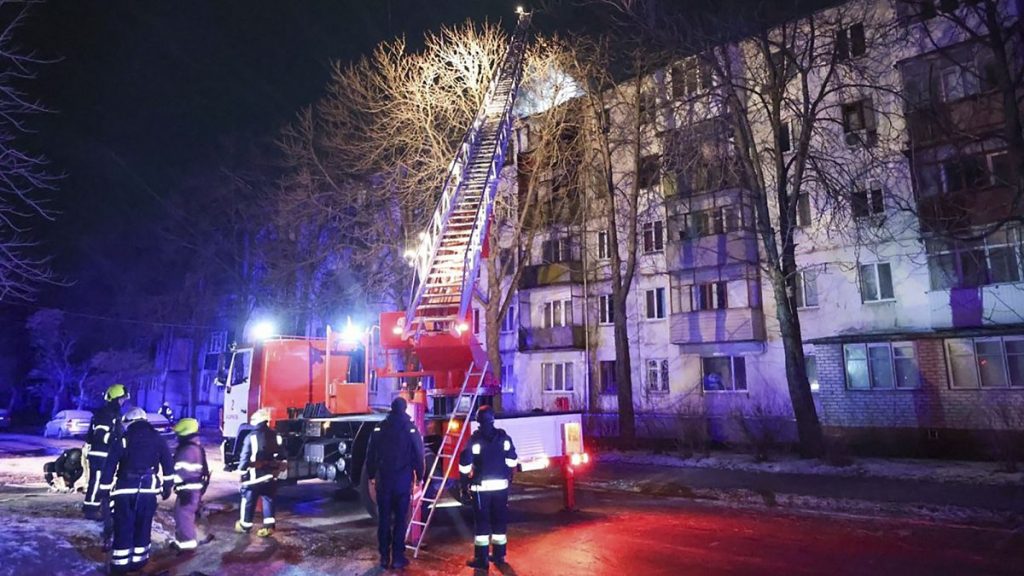Russia’s relentless aerial assaults on Ukraine’s energy infrastructure represent a calculated strategy to demoralize the civilian population and cripple the nation’s defenses. These attacks, often involving barrages of missiles and drones, cause widespread power outages, disrupting essential services like heating, water supply, and transportation. The Kremlin justifies these actions by claiming they target Ukraine’s military-industrial complex, but the devastating impact on civilian life exposes the true nature of this brutal tactic. The repeated targeting of critical infrastructure demonstrates a clear intent to inflict suffering on the Ukrainian people and erode their resilience in the face of the ongoing conflict.
The recent attack, described by President Zelenskyy as one of the largest to date, exemplified this destructive pattern. Over 90 missiles and nearly 200 drones were launched at energy facilities across the country, causing significant damage and plunging communities into darkness. While Ukrainian air defenses managed to intercept a substantial number of incoming projectiles, the sheer volume of the attack overwhelmed the system, leading to widespread disruptions. The fact that these attacks continue despite international condemnation underscores Russia’s disregard for humanitarian law and its willingness to employ indiscriminate force against civilian targets.
The targeting of Ivano-Frankivsk, a city in western Ukraine, highlights the wide scope of these attacks. The barrage, reportedly the largest since the beginning of the full-scale invasion, caused explosions across the region and forced authorities to shut down power for essential services like heating and hot water. This demonstrates that Russia’s strategy extends beyond major urban centers and aims to disrupt life across the entire country. The initiation of a pre-trial investigation into potential war crimes underscores the severity of these attacks and the international community’s growing concern over Russia’s actions.
Even in regions where air defenses successfully intercept incoming missiles, the threat to civilian infrastructure remains significant. In Odesa, while all missiles were reportedly shot down, falling debris caused damage to civilian buildings. This underscores the inherent danger of these attacks, even when they are not directly successful. The constant threat of bombardment forces citizens to adopt emergency protocols and disrupts daily life, creating a climate of fear and uncertainty. Businesses are forced to evacuate, families seek shelter, and essential services are interrupted, highlighting the profound impact of these attacks on the fabric of Ukrainian society.
These attacks are not isolated incidents but part of a sustained campaign to weaken Ukraine’s resistance. Russia has repeatedly targeted the country’s energy grid throughout the conflict, aiming to cripple its ability to function during the harsh winter months. By depriving civilians of basic necessities like heat and electricity, Moscow hopes to break their will to resist and force the Ukrainian government to negotiate on unfavorable terms. This strategy of inflicting widespread suffering on the civilian population constitutes a grave violation of international humanitarian law and represents a cynical attempt to achieve military objectives through inhumane means.
The cumulative effect of these attacks is devastating. With an estimated half of Ukraine’s energy infrastructure damaged or destroyed, rolling blackouts have become a regular occurrence, impacting millions of people across the country. The constant threat of power outages disrupts businesses, hinders access to essential services, and creates a climate of fear and uncertainty. The resilience of the Ukrainian people in the face of these challenges is remarkable, but the long-term consequences of this sustained assault on their infrastructure are deeply concerning. The international community must continue to support Ukraine in its efforts to repair and protect its critical infrastructure and hold Russia accountable for its blatant disregard for international law.

